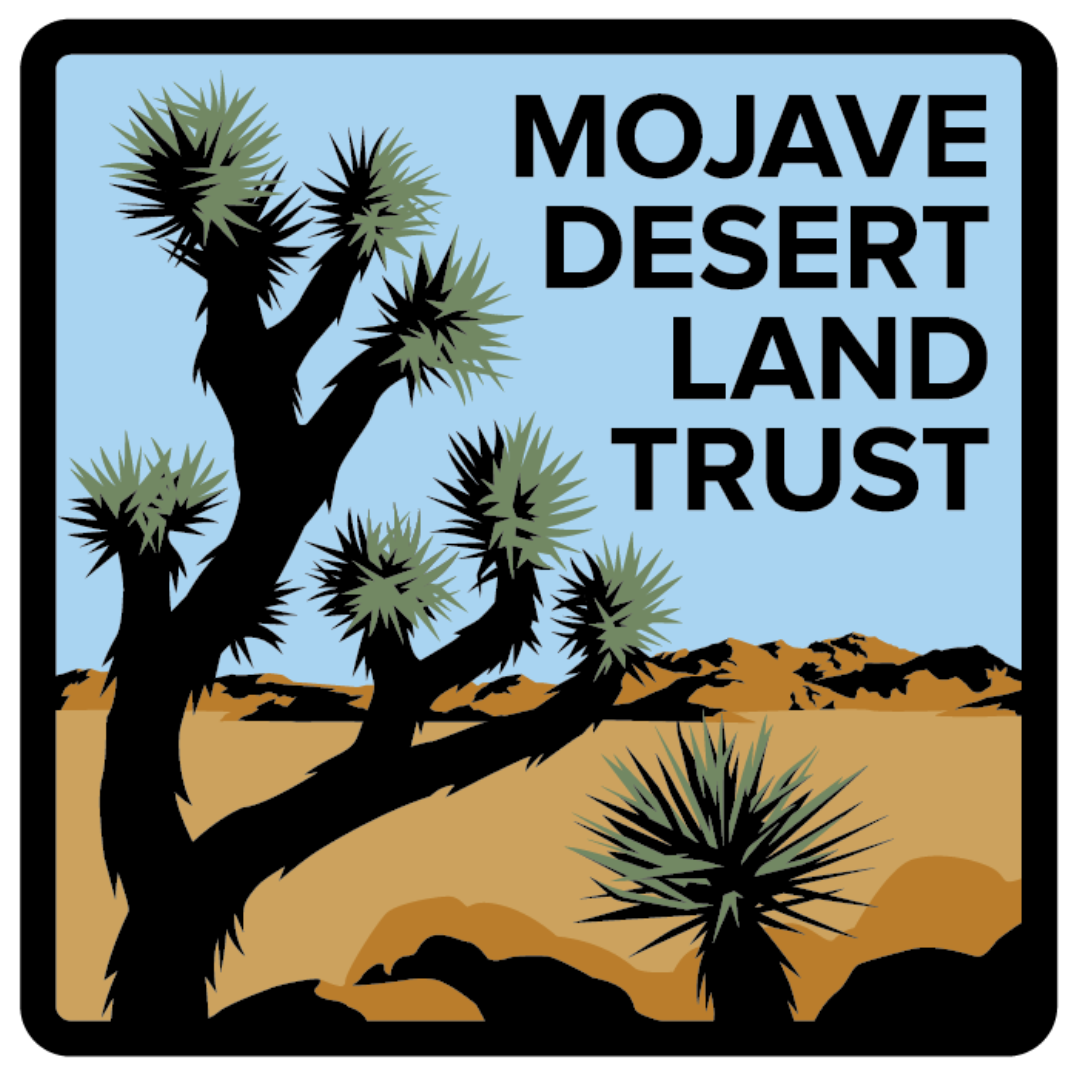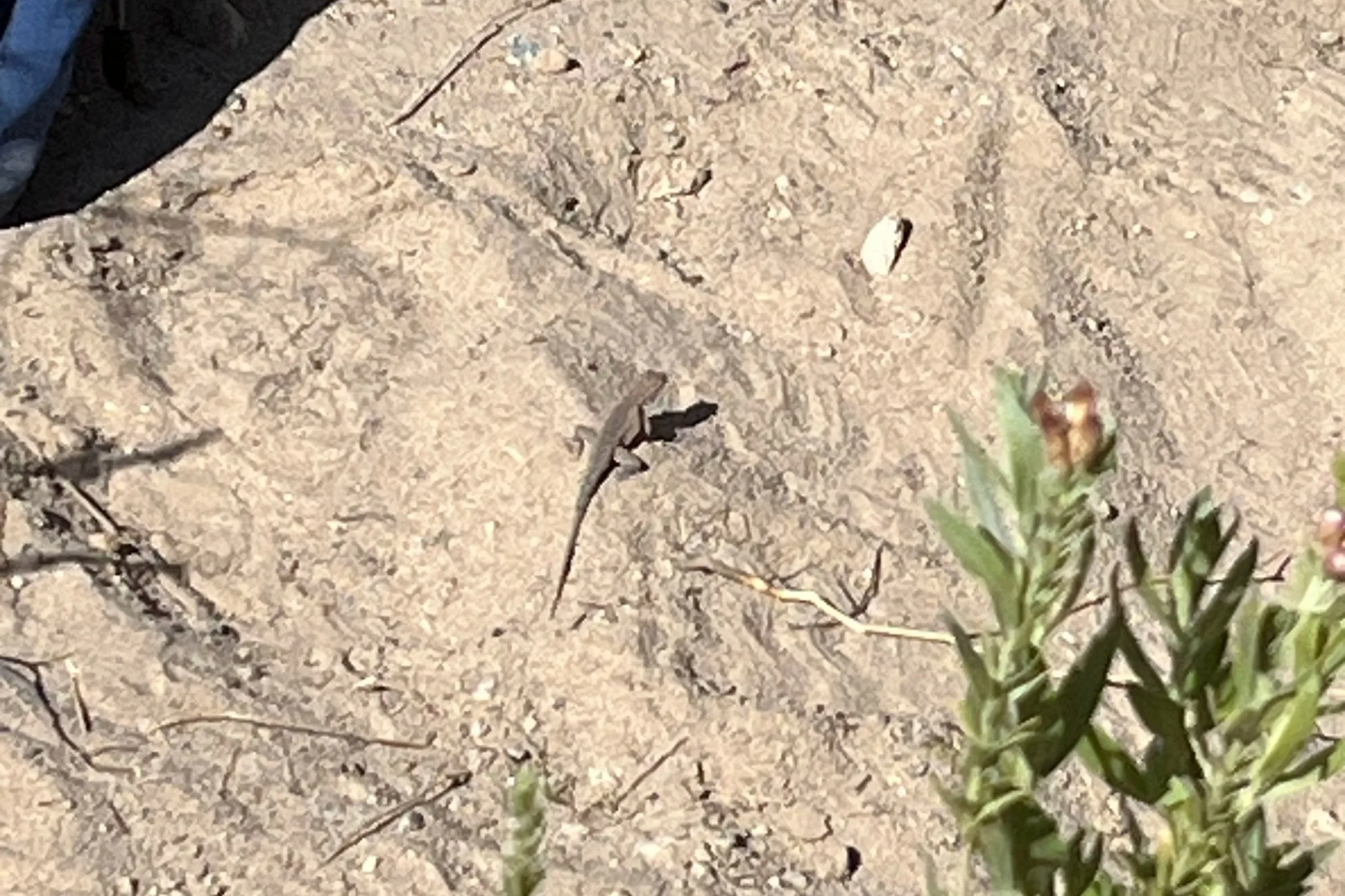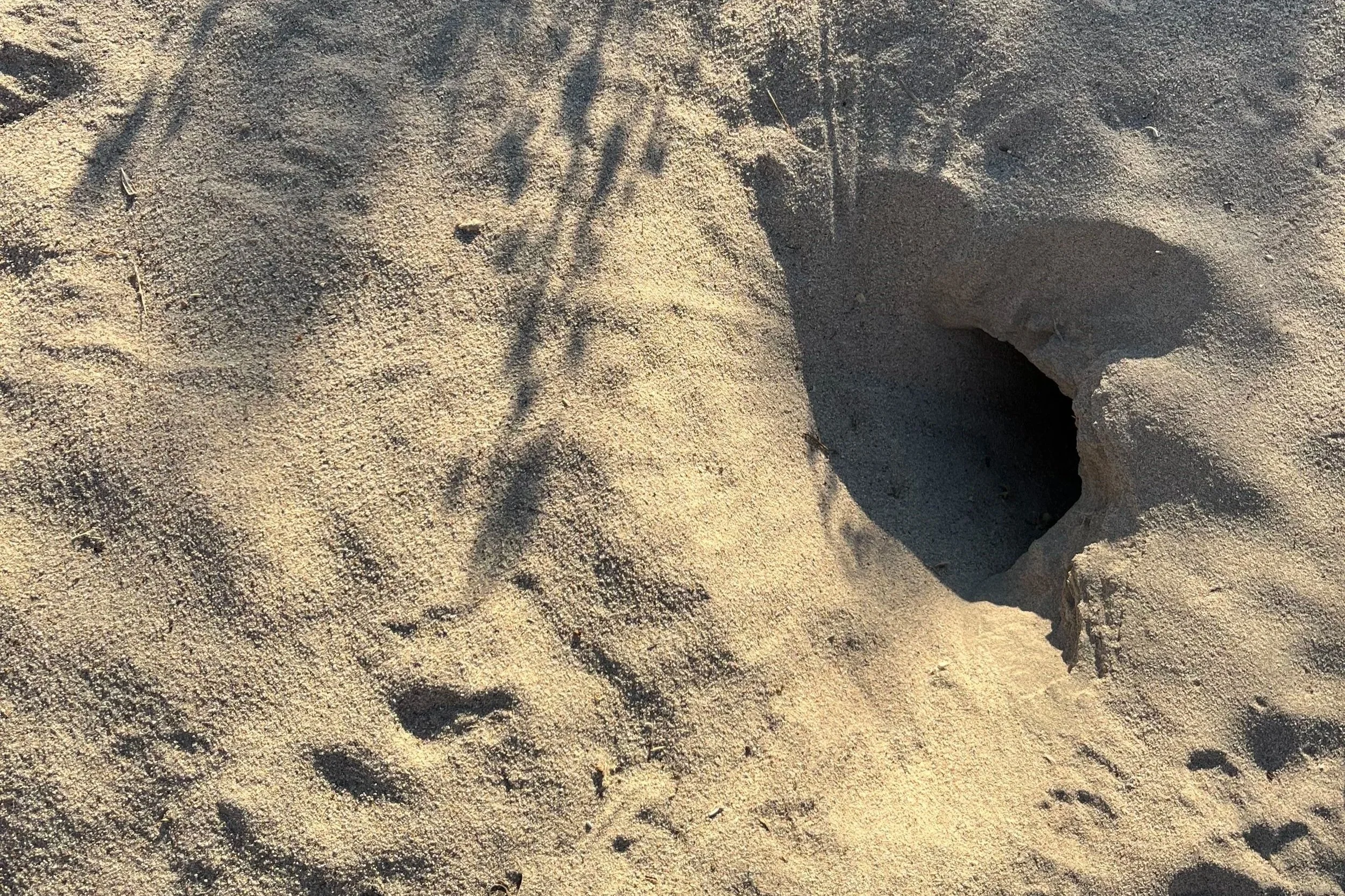Aspiring shark biologist sinks her teeth into the Mojave Desert
By Morelia (Ruby) Gamino, Women In Science Discovering Our Mojave intern
When I was a kid, I remember watching “Deep Blue Sea”, a horror-sci-fi movie about sharks attacking a team of scientists. I was way too young to be watching a movie like that, but instead of being terrified, I was enthralled. Instead of a violent movie villain, I saw sharks as resilient, amazing, smart, and majestic creatures that have evolved over millennia to become fine-tuned apex predators. After my initial exposure to these creatures in film, I wanted to learn everything about them, and when I learned that many species of sharks are endangered, I wanted to protect them.
My name is Morelia Gamino, but I often go by my middle name, Ruby. I was born and raised in Portales, New Mexico. When I was a teenager, I moved to the border in Arizona and later to California. I currently live in Twentynine Palms, CA with my husband at the Marine Corps Ground Air Combat Center (MCGACC). My mom and her family immigrated from Chihuahua, Mexico to New Mexico. As a kid, I had taken on the role—as many children of immigrants do—of translating and helping our parents fill out government forms, helping to pay bills, and supporting my family’s income by making and selling tamales. During the summer, I would cross into Mexico and buy ice pops to sell back home, often walking for hours in the hot, blistering sun. While my mother tried to take care of the bills on her own, I also helped to support her and my family throughout. Suddenly, my love for the environment and sharks was irrelevant because to take care of my family, I felt pressured to find a stable, high earning career, despite my passion for marine biology.
Western side blotched lizard observed by Morelia Gamino.
During my junior year in high school, I had to drop out to care for my siblings and find a full-time job. My family disagreed with my decision. My mother and sister opposed it the most; they had high hopes for me to go to school and get a degree. However, my siblings needed me, so I dropped out of high school, got a job at a call center, and did what was needed. But then what? I felt lost, my family condemned me for this choice, and I felt I had no path ahead of me. At the time, my boyfriend (now my husband) asked if I believed if I could go back to school and get my GED. When I answered yes, I knew that I could do it, he was my biggest support in going back to school.
Six months later, I had earned my GED with the help from my husband and my friend who helped me study. I did it! I was so proud of myself. My husband and I moved to Twentynine Palms when he was stationed at MCGACC. I had earned my GED, but I still felt like I was obligated to get a high-earning degree. I didn’t know what to do. I was good at baking, so I could open my own bakery. I was good at forensic science, so I also considered that. I felt discouraged to pursue a law degree because of my ADHD diagnosis. But I knew it didn't feel right. In my heart, my personal obsession with sharks and marine biology was still alive and strong. I didn't have the confidence that I could pursue a career in marine biology, but I needed to make a choice. When I was asked the classic question: “What did you want to be when you grew up?”, my childhood obsession about sharks upwelled; I devoured countless pages of every book on sharks I could get my hands on and spent many hours watching documentaries about them. The answer to my dilemma was obvious: I wanted to pursue a career in marine biology. This was always my dream, but to my younger self, it had seemed out of reach.
Western honey bee observed by Morelia.
With my husband Jerry encouraging me to follow my dream, I enrolled at Copper Mountain College (CMC) as a biology major. I was excited, nervous, and thrilled. I hadn't been to school in about three or so years, after dropping out. Because I took care of my family from a very young age, I had never actually been able to just be a student. I found myself struggling in my classes and I began losing confidence again. How could I compete in the STEM world if I couldn't get over a C in my difficult classes? I was barely scraping by, having a hard time dealing with my childhood issues that followed my every step while also trying to catch up to people who had been students their whole lives. I was confused, overwhelmed, and low in spirits.
Soon, a new program was created at CMC, called Mathematics Engineering Science Achievement (MESA). MESA is a program for first generation STEM students. Desperate for direction, I immediately signed up for the MESA program. There, I was able to learn how to study, look for schools to transfer to after CMC, and most importantly, I found the Mojave Desert Land Trust (MDLT) and the Women In Science Discovering Our Mojave (WISDOM) internship.
Born from the passion of local citizens, Mojave Desert Land Trust (MDLT) was established in 2006. Since then, MDLT has protected over 120,000 acres of California desert habitat. Working in a service area of over 24.5 million acres, MDLT has a robust outreach program. As part of these outreach efforts, Mojave Desert Land Trust has volunteer programs to engage the local community in the process of conservation. They have also created programs such as WISDOM, Women In Science Discovering Our Mojave, to provide opportunities for STEM students to gain field experience. This internship provides femme-aligned students with opportunities to make connections in the scientific world, learn how to conduct research and collect data, and develop other important skills needed to thrive in the STEM community.
Desert tortoise burrow observed by Morelia.
The first time I applied to WISDOM, I didn't even know how to write a cover letter. I tried on my own and sadly I was not selected for the internship in 2024. I did not give up, and this year, MESA counselors and the career center at CMC helped me write my cover letter. They taught me what to include, prepared me when I got an interview, and celebrated with me when I got the internship for the 2025 program. I was thrilled to have the opportunity to pursue my dream career in biology.
Throughout my professional journey, my confidence has slowly grown. With the help of my mentors, managers, and fellow interns, I have learned real-life applications of conservation biology that relate to my coursework. I have observed and documented an active tortoise burrow and identified plants and animal tracks. I’ve learnt how to do belt transects by setting up a measuring tape in a cardinal direction then using a meter stick to document anything within the transect. And I’ve learned how important the work conservationists and biologists do is. So many people pushed me to grow and pushed me to reach for the stars like I always have wanted to. With the Mojave Desert Land Trust, I have seen the impact conservation agencies have, appreciated the diversity of ecosystems, learnt how to identify said biodiversity, and how to report my findings to be used in scientific research. Vital skills for any biologist, but even more so for someone hoping to study shark behavior like I do. So, for anyone like me out there, reach out, seize the opportunities, and never give up.




